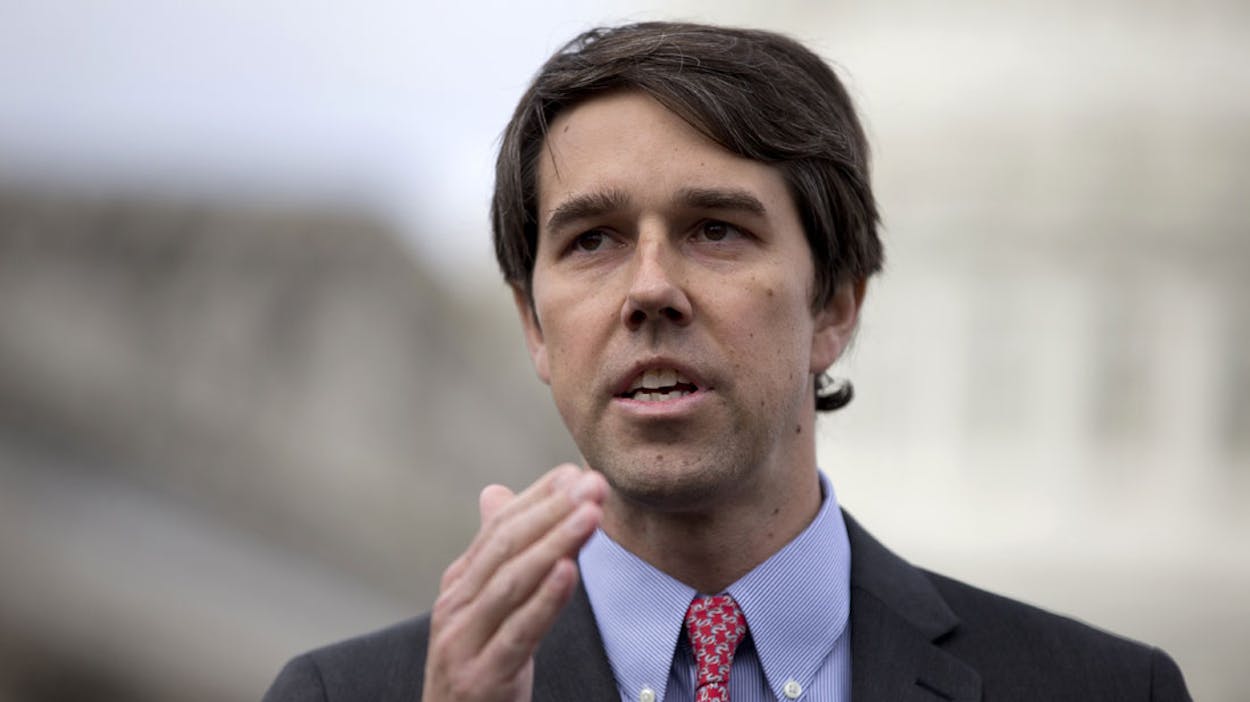The good news for U.S. Senator Ted Cruz in a just released Quinnipiac University poll is that Texans like him and believe he would be best able to handle issues such as the economy, taxes, and gun policy—plus more than half the state voters surveyed lack enough information to have an opinion about Democratic challenger Beto O’Rourke. The bad news for Cruz: O’Rourke is in a statistical tie with Cruz in the election.
Much of the survey results are a reflection of the nation’s polarized politics at the moment. The survey found Cruz leading O’Rourke by 47 percent to 44 percent, a tie in a survey with a margin of error of plus or minus 3.5 percentage points. Although O’Rourke is not well known among the state’s voters, he begins the general election campaign sitting at the level of a generic Democrat.
As might be expected, the lion’s share of the Republican and Democratic voters surveyed support the candidate of their party. What should be troubling for Cruz is that more than half of the independent voters surveyed support O’Rourke—and more than half of the independents have an unfavorable view of Cruz. And most independents do not believe Cruz is honest.
Cruz holds a substantial lead among white voters and those over the age of 50. O’Rourke has a substantial lead among blacks and Hispanics and voters in the 18-to-34-year-old group. The two candidates are in another statistical tie among voters between the ages of 35 and 49.
Neither candidate appears likely to inspire crossover voters. Among the independents, O’Rourke has the opportunity to drive home a distrust of Cruz. But because O’Rourke remains relatively unknown outside of Democratic Party politics, Cruz has an opportunity to define O’Rourke as out of touch with the political mainstream in Texas.
One of the big questions is whether voter reaction to President Trump will affect the election at all. Fifty-two percent of the state’s voters disapprove of Trump as president, and, again, the most telling number is not the partisan reaction but the fact that 64 percent of the independents think Trump is doing a poor job. Women disapprove of Trump 67 percent to 39 percent, and 67 percent of the voters under the age of 35 disapprove of Trump.
However, a substantial portion of the voters—43 percent—said their feelings about Trump would not influence how they vote in the Senate race. The voters who said their ballot will reflect opposition or support for Trump were split almost evenly. The one group of voters who said their vote will reflect opposition to Trump was blacks: 53 percent said they would cast a ballot to show opposition to Trump.
In the governor’s race, incumbent Greg Abbott is well positioned to win over either of the Democrats who are in the May 22 runoff. Former Dallas County sheriff Lupe Valdez and Houston businessman Andrew White are unknown by more than six out of every ten voters. Abbott’s job approval rating is 54 percent. He holds a nine percentage point lead over Valdez and a seven-point lead over White.
“Governor Greg Abbott has a modest lead over each of the two people vying for the Democratic nomination. But what is significant is that governors with 54 percent job approval ratings rarely lose,” said poll assistant director Peter A. Brown.
The survey of 1,029 Texas voters was conducted by telephone between April 12 and 17. The sample was 24 percent Democratic, 31 percent Republican, and 36 percent independent.
- More About:
- Politics & Policy
- Ted Cruz
- Lupe Valdez
- Greg Abbott
- Beto O'Rourke






